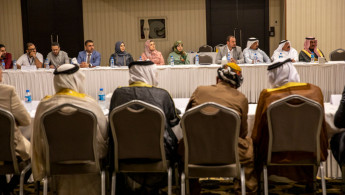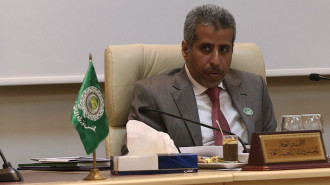Breadcrumb
Iraq to officially investigate UNDP bribery allegations made by The Guardian in 'post-ISIS reconstruction' scheme
The Iraqi Integrity Commission has launched an investigation into corruption allegations linked to the UN's work in Iraq, following accusations of bribery published earlier this month by British newspaper The Guardian.
The announcement was made on the Commission's official Facebook page.
The Guardian report alleged UN employees in Iraq working under a United Nations Development (UNDP) programme had accepted bribes from Iraqi businessmen to secure contracts for reconstruction projects.
The Integrity Commission responded by forming a team to investigate the claims and is seeking evidence and clarifications from the newspaper's editors, according to its statement.
The UN mission in Iraq (UNAMI) confirmed the departure of its Special Representative, Jeanine Hennis-Plasschaert, but distanced itself from the corruption allegations against sister agency UNDP and denied this was linked to the scandal.
UNAMI emphasised its commitment to "accuracy" and urged the media to avoid "misleading information."
"UNAMI would like to set the record straight regarding the recent circulation of misleading reports in various Iraqi traditional and social media outlets concerning the departure of Jeanine Hennis-Plasschaert," said the UNAMI in a statement on Wednesday.
"UNAMI emphasises that the SRSG's departure in May aligns with usual practices within the United Nations, including the standard rotation of senior UN officials," it added.
Hennis-Plasschaert concluded her five-year term on 6 February, calling for Iraq to remain neutral in regional conflicts.
She faced criticism during her tenure for alleged bias towards certain Iraqi factions, according to our Arabic service Al-Araby Al-Jadeed.
What is the UNDP accused of in Iraq?
According to the investigation by The Guardian, the UNDP allegations centre on alleged corruption and mismanagement in a major reconstruction project in Iraq, funded by US$1.5 billion from international donors and intended to help rebuild the country after the defeat of ISIS.
The investigation claimed that UN staff demanded bribes of up to 15% of contract value from contractors in exchange for securing reconstruction projects. It also suggests that Iraqi government officials involved in overseeing the projects allegedly received kickbacks.
The UNDP has vehemently denied these accusations, stating its commitment to "zero tolerance for fraud and corruption". They added that internal mechanisms are in place to prevent and detect such activities.
However, further concerns were raised regarding the project's efficiency and transparency. Critics allege that funds were misspent on unnecessary items like redundancies and overheads, while others question the reported impact of completed projects. The investigation highlighted instances where project claims diverged from reality on the ground, with inflated numbers and overstated benefits.
A UN probe has been launched to investigate the allegations. Additionally, donors have agreed to extend the programme for two more years, but with stipulations to redirect remaining funds towards demonstrably impactful social and institutional development initiatives.
Iraq's Integrity Commission has the authority to investigate corruption involving non-governmental organisations, private companies and foreign officials. It has pledged to make a public announcement once its investigation into UNAMI is complete.






![Anthony Blinken speech [Getty] Anthony Blinken speech [Getty]](/sites/default/files/styles/image_684x385/public/media/images/6263436E-8ACD-4D3C-9055-25A7BE79DD5A.jpg?h=d1cb525d&itok=fLHmHCRG)
 Follow the Middle East's top stories in English at The New Arab on Google News
Follow the Middle East's top stories in English at The New Arab on Google News

![Hajj Saudi Arabia [Getty]](/sites/default/files/styles/image_330x185/public/2157179630.jpeg?h=a5f2f23a&itok=kuo1G9Hw)
![French President Macron [Getty]](/sites/default/files/styles/image_330x185/public/2192150629.jpeg?h=a5f2f23a&itok=_lRlOebg)